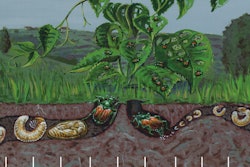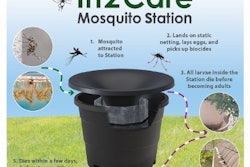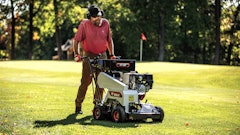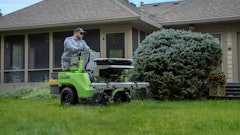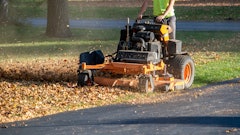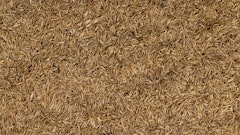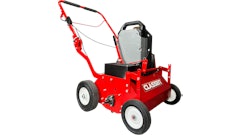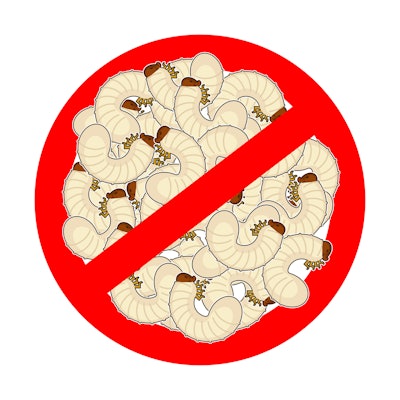
There are various ways to eradicate insects throughout the spring and summer seasons.
While not every method will work on every single pest, below are a few methods lawn care operators can use to keep their clients' lawns pest-free this season.
Chemical control
Insecticides are chemical sprays that can be applied to the lawn to kill insects. There are both synthetic and organic insecticides available, and some may be more effective than others for specific types of pests. It's important to follow the instructions carefully when using insecticides, and to avoid using them in areas where children or pets may come into contact with the treated grass.
Cultural control
Certain lawn care practices, such as proper mowing and watering, can help reduce the likelihood of insect infestations. For example, keeping the grass at a healthy length and watering it deeply but infrequently can help prevent insects from taking hold.
Mechanical control
Hand-picking insects or using a vacuum cleaner to remove them from the lawn can be effective for small infestations. Additionally, using physical barriers such as row covers can prevent insects from accessing the lawn in the first place.
Integrated pest management (IPM)
IPM is a comprehensive approach to pest control that combines multiple methods, including cultural, biological, and chemical control, to manage pests in a way that is environmentally friendly and effective.
Biological control
Some beneficial insects, such as nematodes, ladybugs, and parasitic wasps, can be used to control lawn pests. These insects can be introduced to the lawn to prey on the pests and reduce their numbers.
Top Tips:
- Be sure to correctly identify pests as some insects can cause similar symptoms. Without proper identification, LCOs can have trouble determining the most effective treatment method.
- Timing is critical when treating for lawn pests because insects have different life cycles and are active at different times of the year. Treating at the wrong time can result in ineffective treatment.
- Some insect pests have developed resistance to certain pesticides, meaning the pesticides that were once effective may no longer work, and alternative solutions must be found.
- Pesticides can have a negative impact on the environment, including harming beneficial insects and pollinators. It is important to choose treatments that are as environmentally friendly as possible.
- In some cases, the damage caused by insect pests may already be severe by the time they are identified, making it more difficult to save the lawn.
- Follow label instructions carefully and apply insecticides at the appropriate time and rate to ensure maximum safety and effectiveness.
Sources: Ben Hamza, product development director at FMC Corp.; Julia Willingham, SiteOne business development manager, pest management; Amy Agi, Ph.D., field scientist for Corteva U.S. Turf & Ornamental; Matt Giese, technical services representative for the Midwest for Syngenta; and Richard Fletcher, technical services manager for turf & ornamental at Nufarm.







